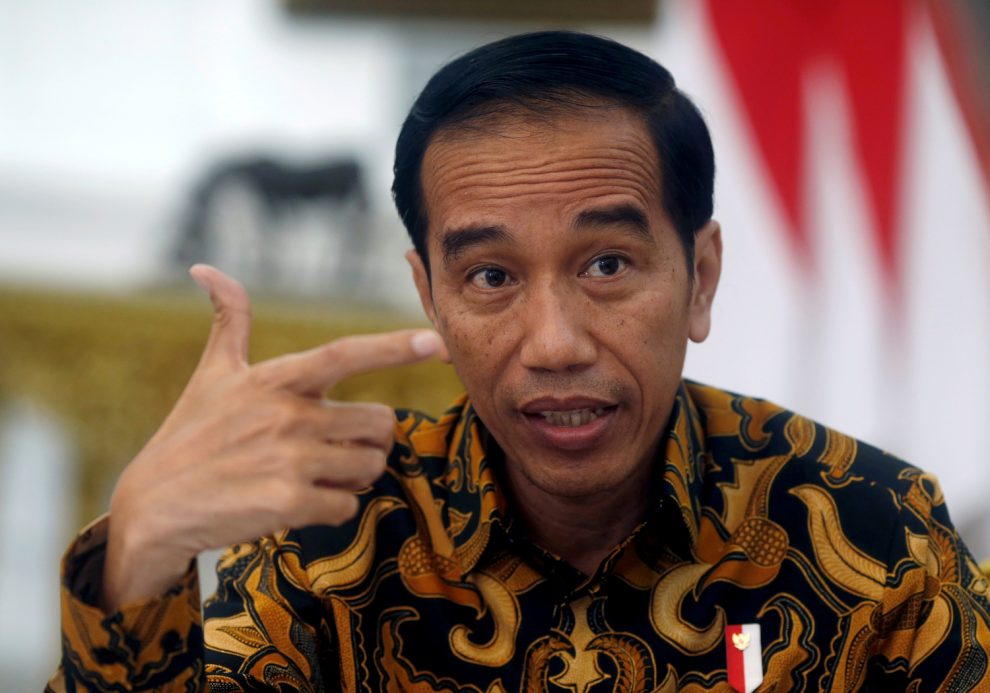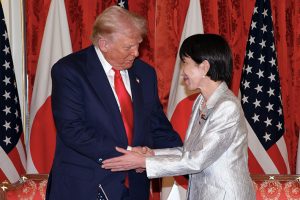(ATF) For years, Indonesia has been criticized for having an undiversified economy that turned away from the traditional Asia export-led model of development, thanks to its restrictive foreign investment and labour policy and decentralised decision-making, which deter investment.
In a December 2019 report to President Jokowi, the World Bank showed that few firms that want to diversify away from China consider Indonesia due to its lack of competitiveness relative to countries such as Vietnam. But even before the trade-war, Indonesia was underperforming, not just against regional counterparts, but even itself.
From 2014 to 2018, manufacturing foreign direct investment (FDI) declined due to deteriorating competitiveness in relation to neighbours such as Vietnam, as Indonesia has been constrained by restrictive investment and labor laws in addition to its insufficient infrastructure. But rather than using its comparative labour advantage to grow labour-intensive manufacturing, Indonesia’s gross exports as a share of GDP declined from 19.7% in 2014 to only 14.8% in 2019.
As a result, some 30% of Indonesia’s working age population is not gainfully employed and thus not contributing productively to the economy. Of total employment, excluding agriculture, only 25% is formal, one of the highest shares in the world and second highest in the region, behind only India, according to the United Nations’ International Labour Organisation.
Of course, what is concerning is that Indonesia has not managed to provide its 273-million people with gainful employment, and, the archipelago nation is expected to expand by 21% by 2050, to 331-million Indonesians. The challenge of how to provide jobs for an increase of 28 million working age people by 2050, on top of an already excess capacity 185 million people in 2020 is a pressing concern that requires more investment to raise the capital stock per worker and absorb these working age Indonesians productively.
Covid-19 reconfirmed the need for change as Indonesia’s economy, which depends on domestic demand, was suppressed by targeted lockdowns, excessive reliance on portfolio flows that went dry when the country most needed it, and weak export engines to benefit from external demand as domestic market remained weak. But on 5 October 2020, the government voted to pass the Omnibus Bill to tackle key challenges.
Two sides to the labour debate
The reaction has been negative, on the labour side, as protectionists lament the loosening of restrictions. But protection for these relatively few workers is what’s holding Indonesia back from creating more employment opportunities for the rest of the population.
The government is lowering the maximum severance pay that employers must give to workers who get laid off to 19 months, from a staggering 32 months. Moreover, it also exempted small- and medium-sized enterprises from minimum wage requirements, as well as allowing the hiring of contract and part-time workers.
While the changes have sparked protests by unions, we would argue that they are necessary to expand opportunities for those not formally employed to enter the labour force. If we compare this to Vietnam, we can see that Indonesia is much more bureaucratic and costly, not just from a labour point of view, but also in terms of flexibility to manage labour demands.
In addition to labour law reforms, the Omnibus Bill also addresses investment issues, by reducing restrictions on investment, lowering the corporate income tax rate, and centralising processes to help with land use and business permits as well as taxation.
While the implementation details are still murky, changes to the investment law also aim to address some of the challenges by liberalising more sectors and reducing the convoluted ways to set up a business in Indonesia, thanks partly to decentralisation efforts after the Asian Financial Crisis in the late 90s that made it difficult to coordinate investment. The reforms to centralise decision-making and reduce red tape will address some of these challenges.
Liberalising investment laws
We believe that the reforms present an opportunity for Indonesia to solve all its problems by unshackling its economy to use its inherent comparative advantage: its people.
By liberalising labour and investment laws, it expands the pie and creates more opportunities for all Indonesians that will make the country attractive for foreign investors to pour long-term capital into the economy to raise the capital stock per worker and use Indonesian workers for more productive jobs. This will solve the funding gap problem over the medium term and create a foundation for the economy to build lasting infrastructure to support higher growth rates.
Of course, we should curb our enthusiasm and wait cautiously for the details of how the reforms will be implemented, which are months away, as actions speak louder than words. But if Jokowi can push through longstanding reforms to tackle major hurdles to Indonesia’s competitiveness and prove his critics wrong, Indonesia is certainly stepping in the right direction to chart a brighter future.
ALSO SEE: Border conflict highlights the urgent need for Modi to do more
Southeast Asia underperformance to reverse
# Trinh Nguyen is Senior Economist covering Emerging Asia at Natixis in Hong Kong. Trinh is an award-winning economist with expertise on the economic trends and the forces shaping them in the Emerging Asia region. Prior to Natixis, she was an Asia economist at HSBC and a research consultant at the World Bank. She holds a Master of Arts in International Affairs and International Economics with a focus on Southeast Asia from Johns Hopkins University.

























